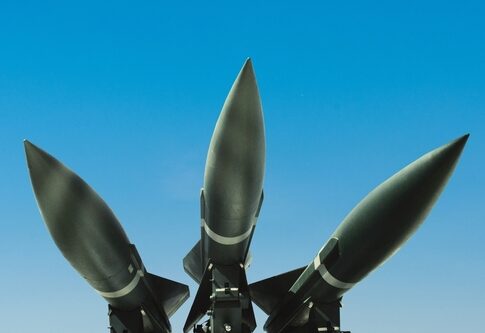Amid escalating tensions with the West, Russia has issued a stark warning that it may join forces with China to counter what it perceives as increasing threats from the United States and its allies. This comes as the Biden administration accuses Beijing of bolstering Russia’s military capabilities during the ongoing war in Ukraine.
Moscow’s foreign ministry spokeswoman Maria Zakharova made the bold statement during a recent press briefing, where she emphasized that any aggressive moves from the West would be met with a united front by Russia and China. “I would like to remind you that Moscow and Beijing will respond to 'double containment' by the United States with 'double counteraction,’” she declared. This is seen as a response to the U.S. strategy of simultaneously containing both Russia and China through diplomatic and military pressure.
If world War 3 breaks and there are two sides:
1. Russia, China, Iran, Yemen, North Korea
2. NATO, United States, Israel, and UK
Which side will you stand? https://t.co/JT9D0HHqwv
— Nabeel Shah (@nabeel_AMU) April 14, 2024
The timing of Zakharova’s comments coincides with growing concerns over U.S. missile deployments in Japan, which some reports suggest could include Typhon mid-range missiles. These missiles, once prohibited by the Intermediate-Range Nuclear Forces (INF) Treaty, are now a point of contention after the treaty's collapse. Moscow views these deployments as a serious threat, particularly as tensions between NATO and Russia continue to escalate following the invasion of Ukraine.
In response, China and Russia have already begun demonstrating their military coordination. Just last week, Chinese and Russian naval forces commenced joint patrols in the Pacific, signaling to the U.S. and its allies that their partnership extends far beyond rhetoric. These drills are part of a broader effort to deepen military and strategic ties between the two nations, which have grown considerably since the start of the war in Ukraine. Chinese state media confirmed that the exercises will last through September and involve both warships and aircraft.
Russia, China Hold "Largest Naval Drill In 30 Years" With "400 Warships, 125 Planes & 90,000 Troops"
On September 10, Russia and China launched extensive joint naval drills in the Sea of Japan, marking the largest exercise in 30 years. President Putin emphasized the drills'… pic.twitter.com/3JCcqedFVd
— Point Blank News (@_pblanknews) September 12, 2024
While Russia and China do not yet have a formal military alliance, their relationship has been described as a “no limits friendship” by Chinese President Xi Jinping. Russian President Vladimir Putin has echoed similar sentiments, referring to the two nations as “allies in every sense of the word” earlier this year. This growing partnership has raised alarms in Washington, with U.S. officials warning that China’s support for Russia could prolong the war in Ukraine and further destabilize the global balance of power.
U.S. Deputy Secretary of State Kurt Campbell recently accused China of supplying more than just dual-use items to Russia, alleging that Beijing is actively providing critical components for submarines and missile technology. These claims have been met with denials from China, which continues to assert its neutrality in the Ukraine conflict. However, Western analysts remain skeptical, citing the increasing military and industrial cooperation between the two nations as evidence that China is playing a significant role in propping up Russia’s defense sector.
Despite their historical rivalries, particularly over border disputes, Russia and China have found common ground in their opposition to what they see as U.S. hegemony. Both nations share a belief that the U.S.-led international order is in decline and have expressed a desire to shape a new global structure, with Eurasia at its core. This ambition is reflected in their joint participation in initiatives like the Belt and Road Initiative (BRI) and the International North-South Transportation Corridor (INSTC), which aim to connect Eurasian economies and reduce dependence on Western markets.
The strategic alliance between Russia and China has broad implications, not only for the war in Ukraine but also for the balance of power in the Asia-Pacific region. As the two countries continue to strengthen their military and economic ties, the West faces the challenge of containing two of the world’s largest authoritarian regimes simultaneously—a task that grows more difficult with each passing year.

